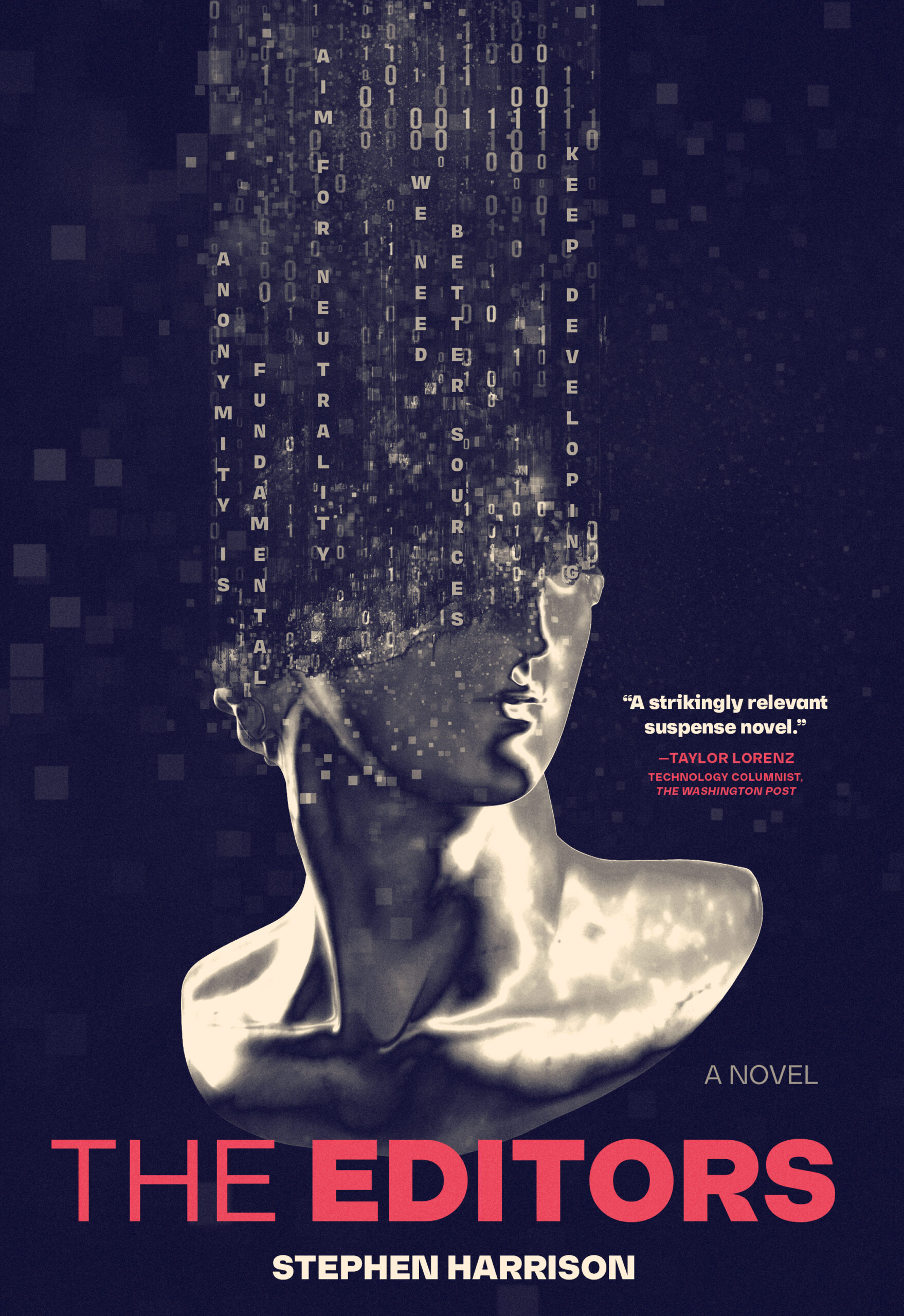Scene | Starting Line 2024
Stephen Harrison’s debut novel says Wikipedia matters (regardless of what your middle-school teachers might say)

“The Editors” author Stephen Harrison’s debut novel comes out in August (Courtesy of Stephen Harrison | Student Life).
Growing up, every single teacher told me to never use Wikipedia for research.
They said that it wasn’t a reliable source for projects and papers. In a way, they were right — the free online encyclopedia can be edited by anyone at any time, and even though it has a set of guidelines and system of moderators, it is not always the most reliable. On the other hand, some have described the site as “The Last Bastion of Shared Reality.” Today, it informs search results and has become the backbone of AI language models like ChatGPT.
As students, we are constantly searching for knowledge and truth in the world around us. We ask professors and classmates questions and make ideological compromises with peers to better connect to and understand a new point of view. We are exploring to see what is possible. One place we often turn to for easy, detailed answers is Wikipedia.
But what happens when Wikipedia becomes weaponized and used to advance an agenda rather than the truth? This is the question that author and WashU alum Stephen Harrison tackles in his debut novel “The Editors,” which comes out in August.
In the novel, Infopedium — the fictionalized version of Wikipedia — becomes a battleground for truth in the early days of the COVID-19 pandemic. The site’s content becomes weaponized in a way that creates a moral crisis for the characters, some of whom are editors of the site.
Consider the way we feel about and react to events in the current social-media landscape. Most of us have posted infographics and snippets of articles that present a small portion of an event’s truth, failing to accurately platform the entirety of an issue. That is an easy example of when objectivity fails and gives way to an agenda. In the novel this mini moral crisis is ratcheted up until the stakes are life and death. This is the problem that Harrison’s main character, freelance journalist Morgan Wentworth, stumbles into when she discovers Infopendium pages are being purposefully doctored.
Initially, she thinks, “Real journalism was too important to be grouped together with the slew of social media,” a statement continually disproven as she learns more about the website. Eventually, she, too, decides to doctor the truth, editing her late father’s Infopendium page to protect his reputation. In this story, Morgan is at the center of the moral spectrum. The novel’s two other key characters, Sasha and Nevin, represent its extremes.
Sasha, who goes by Alex718 on Infopendium, is a senior in high school who believes in the website’s three core tenets: “We Need Better Sources,” “Anonymity Is Fundamental,” and “Aim for Neutrality.” He obsesses over these principles, and only edits articles when he has the sources to back them up. In contrast, Nevin is a “sock-puppeteer,” someone who uses multiple fake accounts to create artificial consensus and works for companies to doctor articles on Infopendium. The ideals mean nothing to him.
Nevin, more than any other character, takes advantage of the anonymity afforded by Infopendium, hiding behind usernames like “Hildegard” and “Telos” to argue anything that might benefit his employer. On top of this obviously unethical behavior, Harrison interrogates the personal cost to Nevin through his use of usernames to separate himself from the content he writes, making it easier for him to stomach what his employers ask of him. This introduces a deeply personal aspect to the novel, emphasizing the need to find our own truth and the values that we believe in. Ultimately, Nevin must confront the reality of his lifestyle when he is asked by the Chinese Communist Party (CCP) to doctor pages in a way that will downplay a SARS-like virus spreading within the country.
The book’s only major problem is its setting of a virus that originates in China and has the same symptoms as COVID-19. The story is just too recent and familiar — the memory is still fresh in our minds, taking the reader out of the novel at times and making it more difficult to connect to the central themes of the book.
However, this deeply researched novel offers a fascinating plot and retelling of the beginning of the pandemic through a rarely considered perspective. It illuminates the challenges to the ideal of truth that we all strive to believe in and practice. Harrison shows the hardships of maintaining a website like Wikipedia, and how it has become central to our public understanding of reality and especially central to events as they unfold.
Four years in college can be a crucial time when one is pushing the boundaries, exploring the vast knowledge of the world around them and trying to understand it. Shared truth matters. It is one of the few things holding us together as a community and country. Standing behind our words matters — with our real names, not online aliases. These things are especially important at a university, particularly at a time when we are all still discovering our stories and asserting the half-formed ideas we care about most to the world. We need some way to come to a consensus about the truth. No matter how much professors tell you not to use it, Wikipedia will be a part of that journey, mostly working unseen in the code of search results and ChatGPT questions. Harrison shows us the risks of corrupting that shared truth that is guiding us all.
